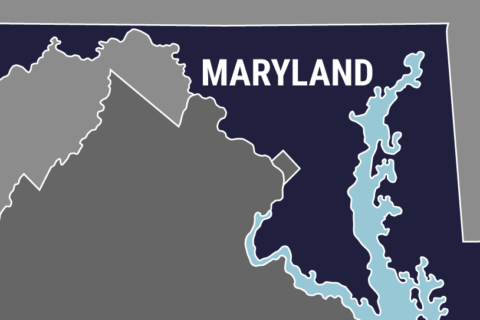This article was republished with permission from WTOP’s news partners at Maryland Matters. Sign up for Maryland Matters’ free email subscription today.
This content was republished with permission from WTOP’s news partners at Maryland Matters. Sign up for Maryland Matters’ free email subscription today.
The Labor Day holiday has come and gone.
So too, has a deadline to put a question about post-Labor Day school start dates on the 2020 ballot.
That actually happened right after Memorial Day, with no fanfare, and before any meaningful referendum effort took hold. At a fiery news conference in February, Republican Gov. Lawrence J. Hogan Jr. promised to take the issue to the ballot.
A majority of Democrats in the General Assembly this year passed a bill that overturned Hogan’s executive order mandating school calendars start after Labor Day and end before June 15.
The same lawmakers overrode the governor’s veto of the bill later in the session. The legislation put the school start date back in the hands of the local school districts.
So what happened to the referendum effort?
It’s unclear.
It takes the signatures of 3 percent of Maryland voters in order to put a referendum on the 2020 General Election ballot. The deadline to submit one-third of the signatures was May 31, and no petition was submitted. All other 2019 referendum deadlines have also passed.
That means the question won’t be going to voters in 2020 because Maryland’s Constitution only allows referendum challenges to acts of the General Assembly and voters can’t undertake their own ballot initiative processes.
The referendum effort may have been undone before it started by an amendment to the bill that dictated what a referendum should say if successfully petitioned to the ballot.
Hogan’s office didn’t respond to questions about the petition effort, though spokesman Michael Ricci noted that Hogan in his veto letter lamented that the legislature had “meddled” in the referendum process.
“Perhaps one of the most troubling aspects of Senate Bill 128 is the politically charged actions that legislators took in recently amending the legislation to directly control the ballot language — a clear attempt to change the outcome of the referendum,” Hogan wrote. “This is highly irregular and a thinly veiled attempt to manipulate the will of our citizens.”
The legislature overrode Hogan’s veto, maintaining the language to be included on sample ballots:
“This Act would allow a county board of education to set the start date and end date of the school calendar for the public schools in that county. Public schools must be open for at least 180 days and 1,080 school hours at elementary and middle schools and 1,170 hours at high schools during a 10 — month period. A county board may apply to the State Board of Education for a waiver from these requirements if normal school attendance is prevented because of natural disaster, civil disaster, or severe weather conditions.”
“This Act would return to a county board the sole authority to set the start and end dates of the school calendar year. A county board would still be required to meet other requirements, such as the minimum number of days and hours, when setting the school calendar.”
To petition an act of the General Assembly to the ballot requires the signatures of at least 3 percent of the state’s registered voters, based on the number of people who voted in the last gubernatorial election. For 2020, that means 69,135 would be required.
No acts passed by the General Assembly were successfully petitioned to referendum this year. An effort to overturn Senate Bill 793, which established a private police force at Johns Hopkins University, attracted about 1,000 or so signatures, but did not generate enough support before filing deadlines.
Two county school systems — Allegany and Garrett, which have frequent weather-related closings in the winter — started school before Labor Day this year, on Aug. 28 and 26, respectively. Students everywhere else in the state started last Tuesday. Start dates for this school year we’re set before the legislation was passed.







